July 2015
Law Centres Network
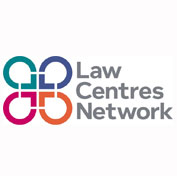

IT Upgrade Project
Grant: £21,000
July 30, 2015
- Undertake an audit of the current IT hardware and software and consultation on IT needs leading to a proposed solutions package.
- Negotiate with suppliers to provide and assist in implementing the proposed solutions package.
- Implementation at law centres.
| Increase Public Understanding | Advance High Quality Thinking | Increase Access to Employment |
| Staff in Voluntary Sector | ||
| Implications of Brexit | Legal Needs in Healthcare Settings | Influence the Online Court |
| Develop Robust Evidence Base | ||
| Understand Role of Technology | ||
| Law Reform, Policy and Regulation | ||
| Communications to Disseminate Learning | ||
Legal Advice Centre (University House)


Future Advice - Legal Expenses Insurance Project
Grant: £83,746
July 16, 2015
This project is to first scale up the sector’s knowledge of how to engage with LEI and then to develop public education around LEI. To make LEI work for communities it will first require the sector to have the skill set so that it can utilise the regulatory framework to use LEI. This First Stage is to develop the knowledge base of the sector by the provision of training/information, on-going support and in some cases supervision. This will be a national project, so by necessity will need to fully utilise new technology to provide the necessary capacity and reach.
| Increase Public Understanding | Advance High Quality Thinking | Increase Access to Employment |
| Staff in Voluntary Sector | ||
| Implications of Brexit | Legal Needs in Healthcare Settings | Influence the Online Court |
| Develop Robust Evidence Base | ||
| Understand Role of Technology | ||
| Law Reform, Policy and Regulation | ||
| Communications to Disseminate Learning | ||
Avon and Bristol Law Centre
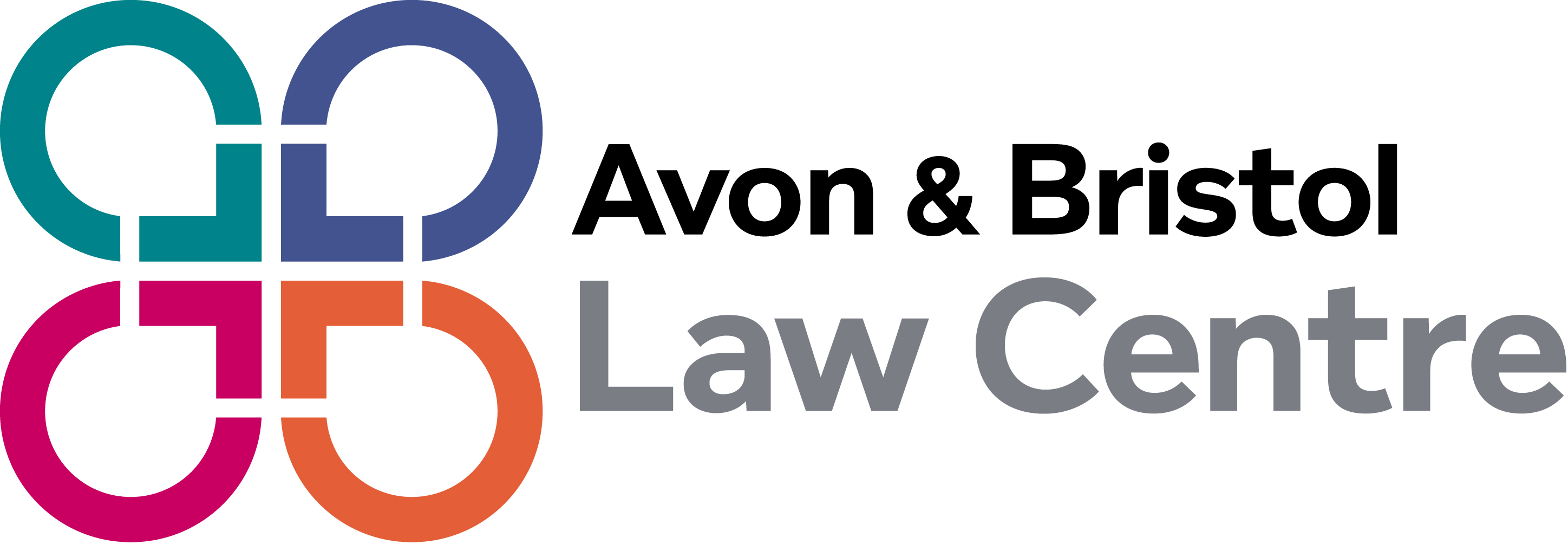

Future Advice - South West Law Centres Community Interest Company – Ethical Law
Grant: £71,454
July 16, 2015
The project plans to generate a sustainable source of income for the 3 law centres by earning private fees which are split between the solicitor and Ethical Law (“EL”). EL’s profits are then donated to the law centres.
EL will draw on a pool of solicitors initially specialising in family, employment and immigration, as we know from experience that there is demand for private work in these areas.
| Increase Public Understanding | Advance High Quality Thinking | Increase Access to Employment |
| General Public | ||
| Implications of Brexit | Legal Needs in Healthcare Settings | Influence the Online Court |
| Develop Robust Evidence Base | ||
| Understand Role of Technology | ||
| Law Reform, Policy and Regulation | ||
| Communications to Disseminate Learning | ||
The Access to Justice Foundation
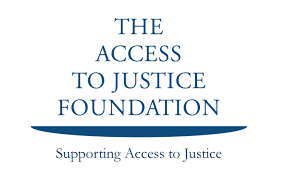

Pro bono costs in the advice sector
Grant: £35,195
July 16, 2015
A pilot scheme is proposed whereby:
- A number of agencies will would be asked to join a pilot scheme whereby they would be funded to take on additional case work which would be suitable for requesting pro bono costs if successful. It is anticipated that this would comprise caseworkers working alongside pro bono lawyers wherever possible to reduce the costs to the agency. After the initial funding outlay it is hoped that the pro bono costs received would enable the agencies to continue with further casework. The agencies listed below have expressed interest in the pilot. The agencies will be selected on a basis to ensure a range of geographical areas, areas of law and types of agency.
- Encouragement by the ATJ Foundation for pro bono clinics and organisations using pro bono lawyers to introduce time recording for their pro bono lawyers, ideally in the form of a “Pro Bono Passport”. This would also enable litigants to record their own “litigant in person expenses”.
- Alongside this all advice agencies, including Citizens Advice Bureaux and Law Centres, will receive publicity regarding pro bono costs, their applicability and the fact that the agency can expect to receive up to 50% of orders obtained by them if they register for the scheme. Agencies across the country would be encouraged to:
- Request pro bono costs wherever possible, bearing in mind that they can request pro bono costs alongside both ordinary costs and litigant in person expenses.
- Ask litigants in person who have received one off pieces of pro bono assistance (whether from a qualified caseworker of pro bono lawyer) to request pro bono costs if their case gets to court.
- In the event pro bono costs orders are made, request (to the Foundation) that the costs obtained are donated to the agency to enable them to continue the casework.
Publicity would be in the form of workshops at conferences, DVDs and printed materials.
Aims
- Ensure advice agencies understand pro bono costs and in particular the circumstances in which they are available.
- Encourage better recording of the pro bono work undertaken within advice agencies in order for pro bono costs to be claimed wherever appropriate.
- Ensure pro bono costs are obtained by the advice agencies wherever appropriate by ensuring they see the benefits of obtaining pro bono costs.
- Encourage and enable more pro bono work to be carried out at advice agencies, both by internal caseworkers and external pro bono lawyers.
| Increase Public Understanding | Advance High Quality Thinking | Increase Access to Employment |
| People Working in the Law | ||
| Implications of Brexit | Legal Needs in Healthcare Settings | Influence the Online Court |
| Develop Robust Evidence Base | ||
| Understand Role of Technology | ||
| Law Reform, Policy and Regulation | ||
| Communications to Disseminate Learning | ||
Legal Action Group (LAG)
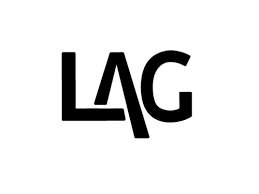

Third and Final Phase of the Low Commission's work
Grant: £36,500
July 16, 2015
There are many settings in our community where people can identify individuals who need informal advice, such as GP surgeries, community centres, faith groups etc. This project will provide an online information source for social welfare law practitioners in three areas of social welfare law – employment, housing and community care. It will cover topics such as housing, employment and community care law including self-help guides on common legal problems.
LAG was instrumental in establishing and supporting the Low Commission on the Future of Advice and Legal Support which aimed to address the challenges facing social welfare law. The LIP will be active in the run-up to the general election seeking to inform the political parties and public opinion in support the recommendations of the Commission. This grant will allow LAG to engage additional public affairs and PR resources to raise the profile and engagement with this project.
| Increase Public Understanding | Advance High Quality Thinking | Increase Access to Employment |
| User of Advice Organisations | ||
| Implications of Brexit | Legal Needs in Healthcare Settings | Influence the Online Court |
| Develop Robust Evidence Base | ||
| Understand Role of Technology | ||
| Law Reform, Policy and Regulation | ||
| Communications to Disseminate Learning | ||
Pascoe Pleasence Limited


Development of standardised inventories of legal capability
Grant: £45,000
July 1, 2015
The project aims to arrive at a standardized tool for evaluating legal confidence which can be used to measure the legal confidence of individuals. In order to arrive at this standardized tool, a technique called factor analysis is used.
Factor analysis allows researchers to investigate concepts that are not easily measured directly by collapsing a large number of variables into a few interpretable underlying factors. Factor analysis has been used to arrive at a standardised test for complex concepts such as @ldquo;socio-economic status” or differential diagnosis of psychological conditions. Researchers collect a series of questions that relate to concepts that they believe to be associated with the phenomenon they are attempting to measure (for example, in the case of “socio-economic status” these might include questions about “income”, “education”, “house value”, “number of crimes per year in neighbourhood”). These questions are put to a large sample of individuals, the results collected, and the researcher examines the data to see if there are any patterns in the data which would indicate that the answers given to the questions that have been asked are related to an underlying phenomenon that is not being directly measured by the questions. For example, in the case of socio-economic status, researchers observed patterns in responses given to questions about income, employment, and level of education. Statistical techniques are then applied in order to work out which of the question responses are most likely to account for changes in the phenomenon that is not being directly measured (e.g. in the case of “individual socio-economic status”, (the underlying non directly measured phenomenon), difference in responses to questions about income level account for more change in socio-economic status than level of education). In order to be sure that the questions posed accurately predict the presence of the underlying concept across the population as a whole (and not just within a particular sub-group) they should be put to a group of people who are as representative of the wider population as possible. The best way to guarantee this is to pose these questions to a representative, random probability sample. In order to arrive at a tool for that is not overly long or onerous, the exercise must be repeated, this enables the researcher to refine and reduce the list of questions that are relevant to assessing the underlying concept.
It must be noted that this is an experimental project. Standardised tools for measuring concepts such as “legal confidence” have not been developed before. It may be that the questions that are posed do not reveal patterns in the data that indicate an underlying phenomenon that we might define as “legal confidence”. This is an unlikely but possible outcome that should be borne in mind when considering the level of funding that should be dedicated to this project.
| Increase Public Understanding | Advance High Quality Thinking | Increase Access to Employment |
| Related Research | ||
| Implications of Brexit | Legal Needs in Healthcare Settings | Influence the Online Court |
| Develop Robust Evidence Base | ||
| Understand Role of Technology | ||
| Law Reform, Policy and Regulation | ||
| Communications to Disseminate Learning | ||
Release


Educating and empowering people to represent themselves in court
Grant: £82,684
July 1, 2015
| Increase Public Understanding | Advance High Quality Thinking | Increase Access to Employment |
| General Public | ||
| Implications of Brexit | Legal Needs in Healthcare Settings | Influence the Online Court |
| Develop Robust Evidence Base | ||
| Understand Role of Technology | ||
| Law Reform, Policy and Regulation | ||
| Communications to Disseminate Learning | ||
Coventry Law Centre
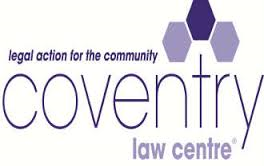

Rights in Practice
Grant: £69,544
July 1, 2015
| Increase Public Understanding | Advance High Quality Thinking | Increase Access to Employment |
| User of Advice Organisations | ||
| Implications of Brexit | Legal Needs in Healthcare Settings | Influence the Online Court |
| Develop Robust Evidence Base | ||
| Understand Role of Technology | ||
| Law Reform, Policy and Regulation | ||
| Communications to Disseminate Learning | ||
National Pro Bono


Office Funding
Grant: £25,000
July 1, 2015
| Increase Public Understanding | Advance High Quality Thinking | Increase Access to Employment |
| User of Advice Organisations | ||
| Implications of Brexit | Legal Needs in Healthcare Settings | Influence the Online Court |
| Develop Robust Evidence Base | ||
| Understand Role of Technology | ||
| Law Reform, Policy and Regulation | ||
| Communications to Disseminate Learning | ||
The AIRE Centre


European Rights Education Project
Grant: £62,021
July 1, 2015
| Increase Public Understanding | Advance High Quality Thinking | Increase Access to Employment |
| Staff in Voluntary Sector | ||
| Implications of Brexit | Legal Needs in Healthcare Settings | Influence the Online Court |
| Develop Robust Evidence Base | ||
| Understand Role of Technology | ||
| Law Reform, Policy and Regulation | ||
| Communications to Disseminate Learning | ||
Select by Objective
Select by Theme
Select by Tool
Select by Grantee
Grantees
Select by Date
Grants Archive
Search
